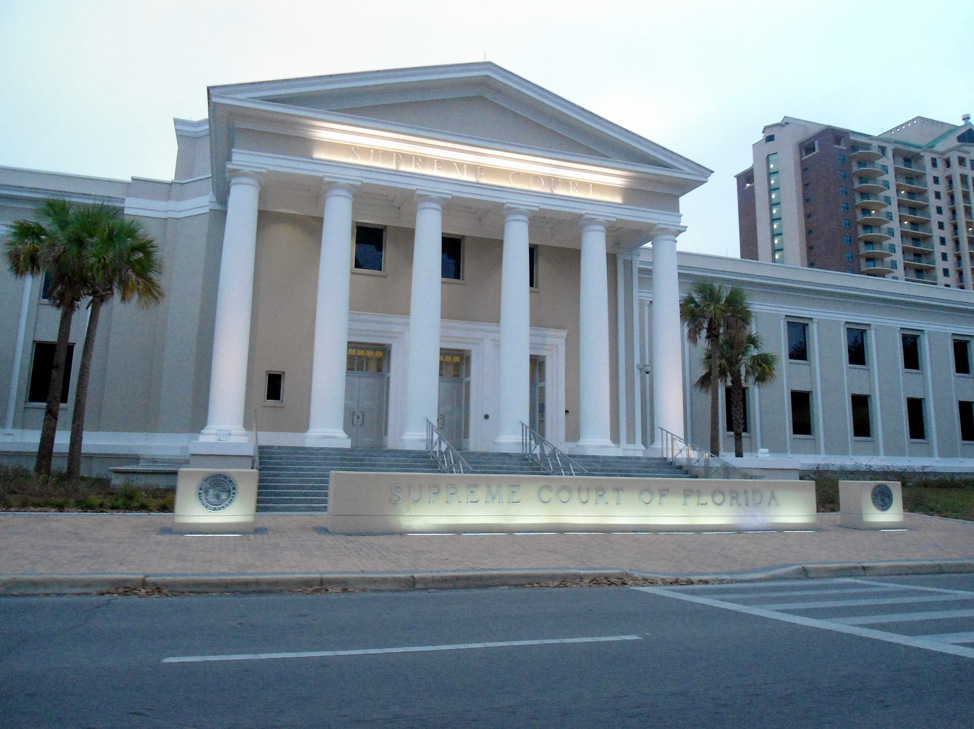In a hearing conducted over Zoom, a three-judge panel of the Florida Third District Court of Appeals unanimously ruled that the use of Zoom to conduct remote probation hearings does not violate a defendant’s rights according to either the U.S. Constitution or the Florida Constitution.
Jermaine Clarington was sentenced to life in prison without parole as a 15-year-old in 1992. In large part due to new juvenile sentencing legislation, Clarington was released on parole in January 2018. However, Clarington, who is now 45 years old, was charged by his probation officer with violating the terms of his release in June 2020. Clarington then filed an appeal on the grounds that a remote probation hearing would violate his constitutional rights.
The court summarized Clarington’s appeal as objecting “to the remote conduct of the probation violation hearing as violative of his right to counsel, right to due process, and right to confrontation.”
The National Association of Criminal Defense Lawyers, the Florida Association of Criminal Defense Lawyers, and the Florida Public Defender Association filed a joint amicus curiae, or “friend of the court,” brief in support of Clarington’s constitutional arguments.
Guaranteed by the Sixth Amendment to the U.S. Constitution, the right to counsel grants defendants five distinct rights, including the right to the effective assistance of counsel. Clarington argued that a remote hearing would decrease the effectiveness of his counsel by interfering with his ability to communicate with his counsel during the hearing.
The court declined to rule on the issue of the right to counsel, finding Clarington’s argument and a lower court’s promise of the ability to utilize a breakout room for communication during the trial as “too speculative at this point to resolve.”
The right to due process, laid out in the Fifth and Fourteenth Amendments to the U.S. Constitution, has been widely interpreted in the past to give defendants the right to be physically present in the courtroom. Clarington argued that a remote hearing would thus infringe on his right to due process.
The court disagreed, finding current remote court procedures to be in line with Clarington’s right to due process when considering “the necessities created by the threat to public health and safety posed by the novel Coronavirus.”
Finally, the right to confrontation, found in the Sixth Amendment to the U.S. Constitution, generally guarantees defendants the right to confront opposing witnesses in a criminal trial. Clarington argued that an inability to confront opposing witnesses in person violated his constitutional right to confrontation.
The court rejected Clarington’s argument, stating simply that “unlike a criminal prosecution, a probation violation hearing is a post-adjudicatory proceeding,” and therefore that “there is no constitutional right of confrontation at a probation hearing.”
However, the court emphasized that its decision held a narrow scope, looking specifically at the right to due process and the right to confrontation in remote probation hearings. As a result, the door is still open for further constitutional challenges relating to other constitutional rights or to constitutional rights in a criminal trial.
Clarington’s probation hearing was rescheduled for Dec. 7, but his lawyers have appealed the Third District Court of Appeals’ ruling to the Florida Supreme Court. The state’s highest court has not yet decided whether it will hear arguments in the case.
Featured image: The Florida Supreme Court Building. Unmodified image by Brandonrush used under a Creative Commons license. (https://bit.ly/38bC1qX)
Check out other recent articles from the Florida Political Review here.





